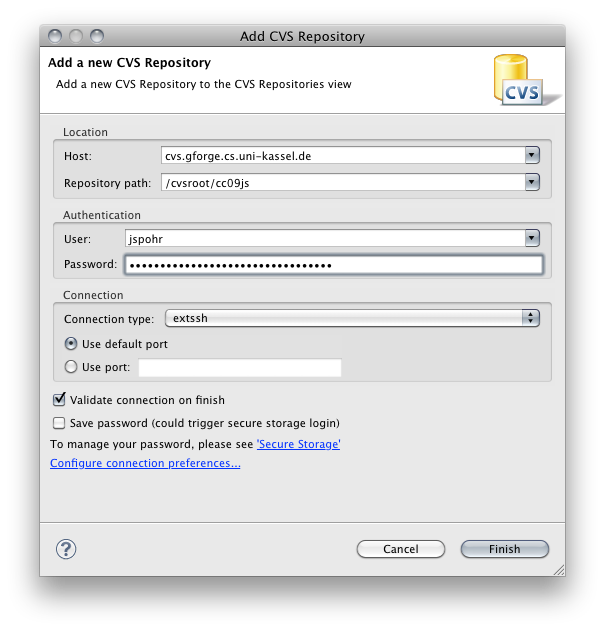A student has asked me how repository folders should be named to avoid confusion. I suggest the following:
- Call the Eclipse project exactly as the CVS module name, e.g. “compilerbau” or something similarly short, no blanks please
- Create a normal Java project with a src and a bin folder!
- Inside the source folder, put your homework in a Java package, e.g. “de.uniks.compilerbau.homework01” for your first homework
Remember, this is only a suggestion, but you should really use Java packages. If you haven’t, you can use Eclipse’s refactoring tools to move your code into a package.
